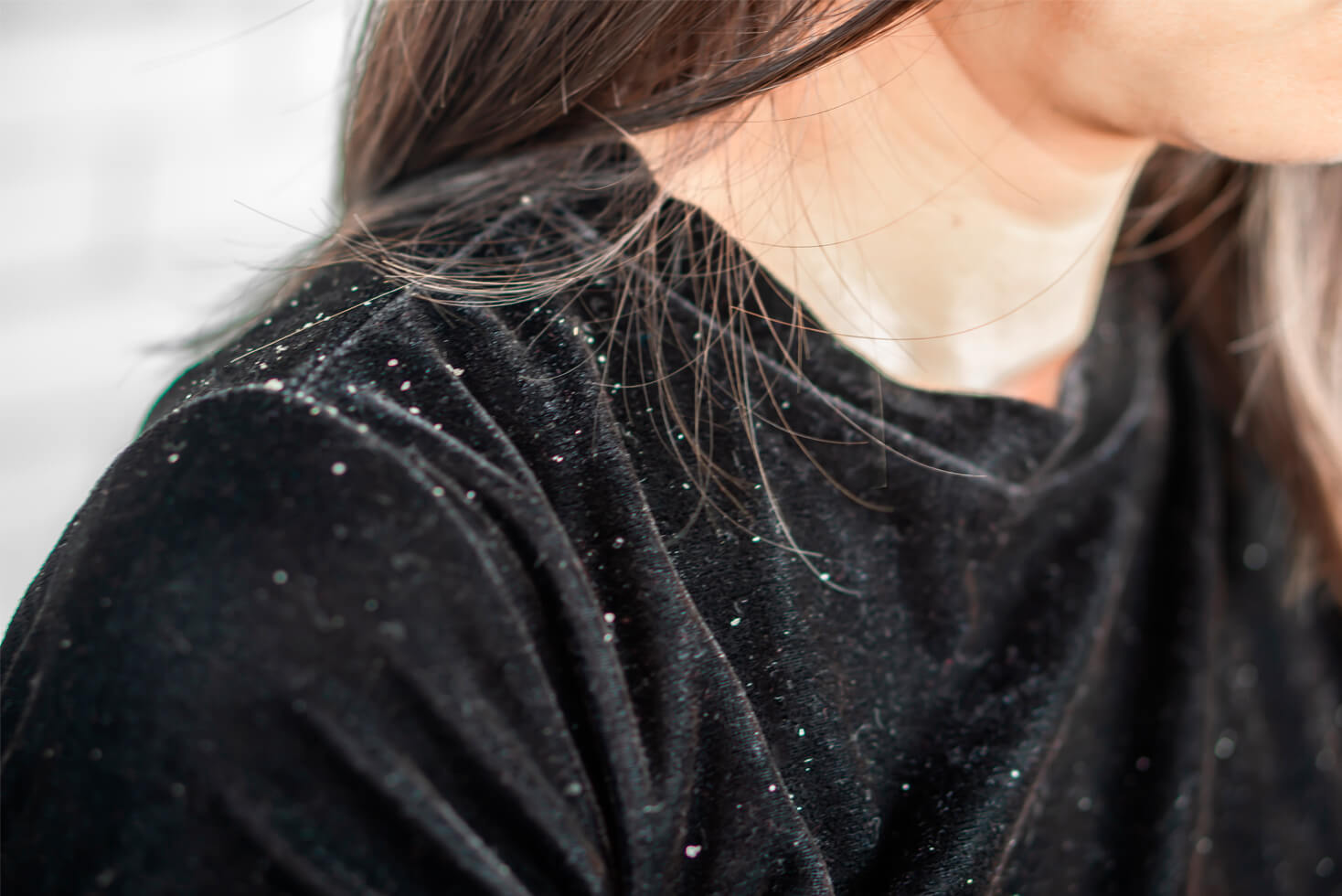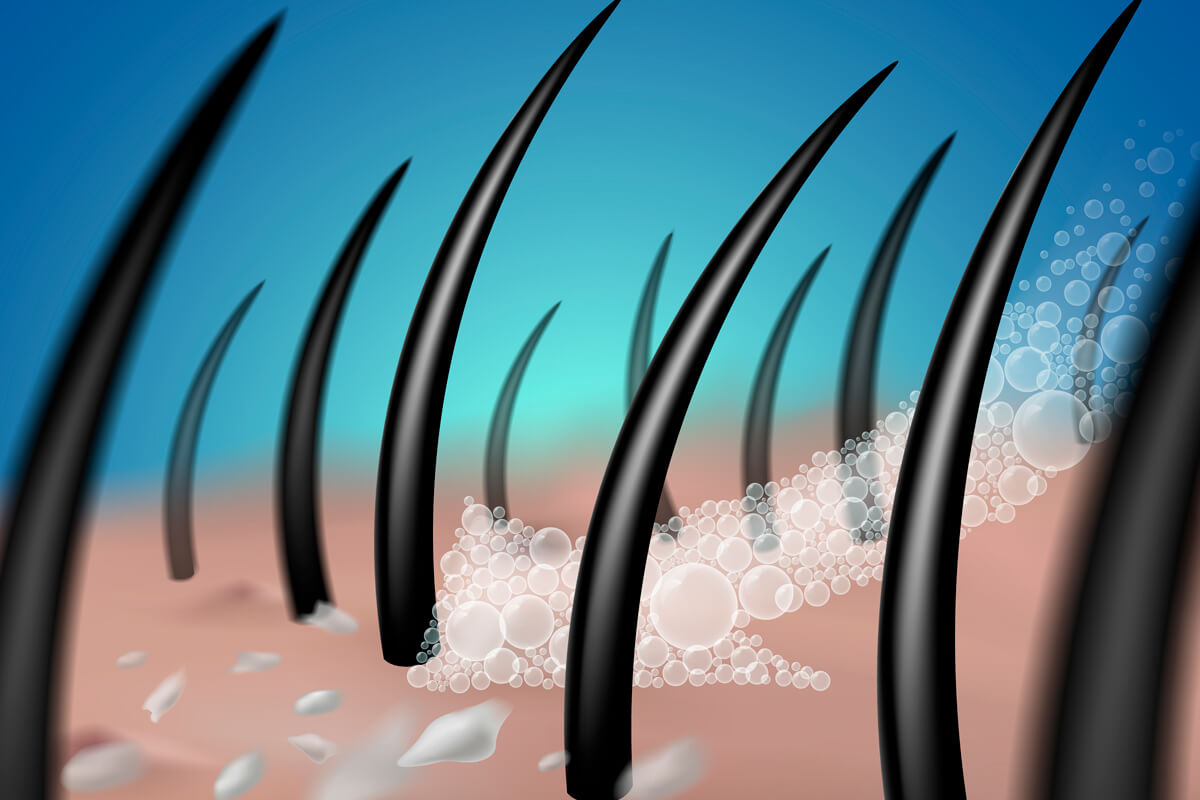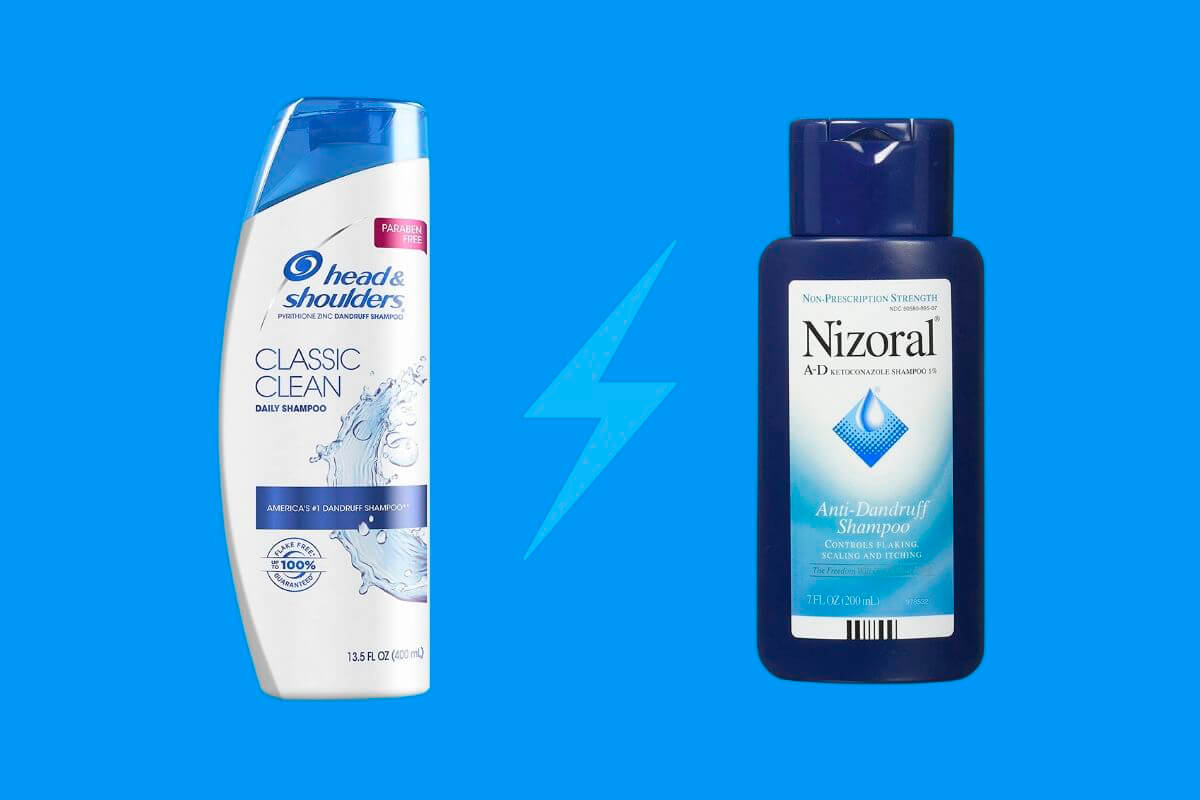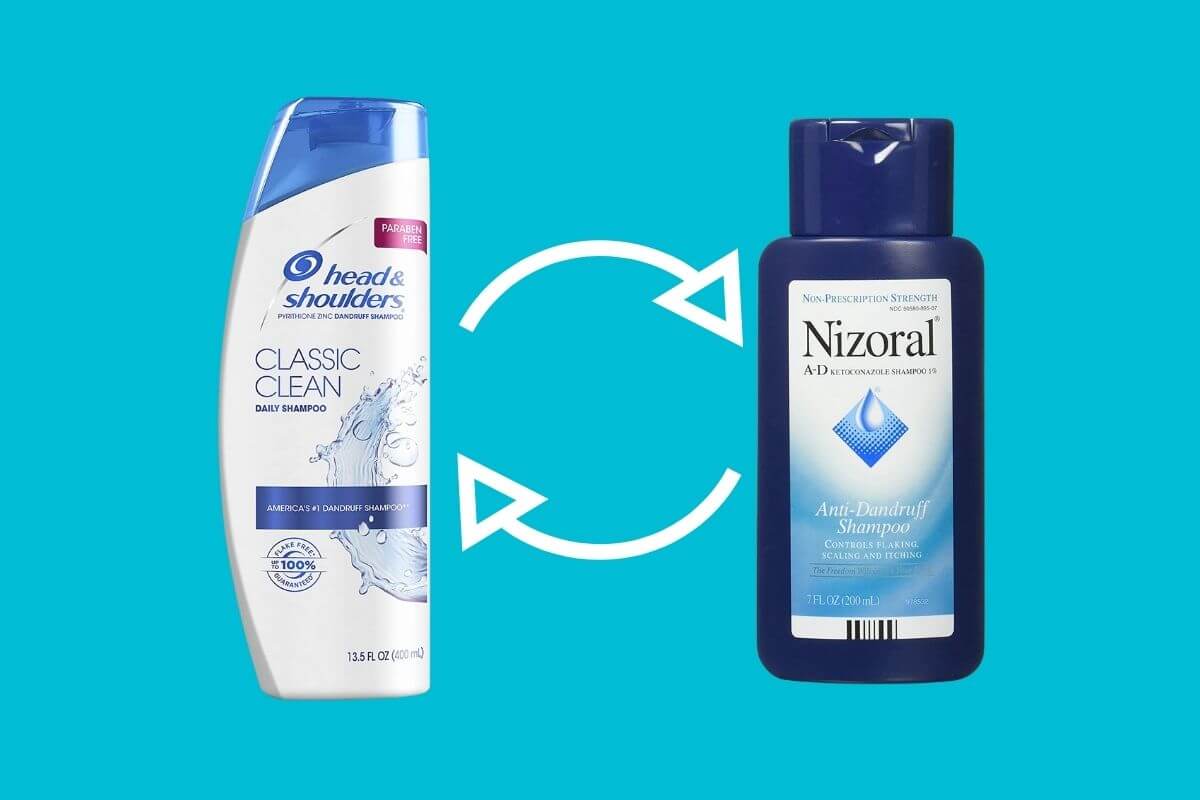Does Clarifying Shampoo Help With Dandruff?
Updated on
This post may contain affiliate links. As an Amazon Associate, we may earn from qualifying purchases.

Dandruff, also known as Seborrheic Dermatitis [1], is a scalp condition caused by the growth of the Malassezia yeast bacteria that feeds on excess sebum clogging the pores on the scalp.
Technically, it can be described as a mild form of Eczema as they share similar symptoms such as flaking, inflammation, itching, redness, and unpleasant odors.
While a clarifying shampoo can help with dandruff as a topical treatment, it cannot fix other contributing causes such as hormone disorders, diet, depression, and illnesses that may require medication.
Therefore, to completely eliminate dandruff, you need to consult a Dermatologist to identify the root cause and use the appropriate oral medication or medicated shampoo.
A clarifying shampoo can only support the process by keeping the scalp clean and balanced to prevent bacterial growth from exacerbating the condition.
A Clarifying Shampoo Keeps Your Scalp Healthy

A clarifying shampoo is more intense than a regular shampoo. It’s formulated with surfactants and clarifiers that can break down stubborn dirt, buff away dead skin cells, purge congested pores, and dissolve stale sebum that encourages malevolent organisms like yeast to feast on [2].
A clarifying shampoo detoxes and purifies the scalp through every single pore to minimize bacterial infection that causes dandruff by removing dirt, dry flaking skin, impurities, and dirty oils.
Moreover, some clarifying shampoos also contain antibacterial and antifungal ingredients like apple cider vinegar or aloe vera that are super effective at killing bacteria due to their acidic and pH-lowering properties.
Overall, a clarifying shampoo is essential to give your scalp a clean slate when dirt and styling products start to accumulate. It keeps the scalp purified, hygienic, and pH balanced for optimum follicular activity and sebum production.
Related: The best clarifying shampoo brands.
Does Clarifying Shampoo Help With Dandruff?
Yes. A clarifying shampoo is the first line of defense against dandruff but definitely not the magic solution that will cure the problem for good.
Dandruff is a condition that causes the skin on the scalp to flake. Factors such as scalp hygiene, hormones, diet, and sensitivity to ingredients in hair products can cause dandruff. This means that before you can treat dandruff, you need to find out the cause. If your dandruff is caused by your diet, then no amount of clarifying shampoo will remove it from your scalp. Meanwhile, some people with severe cases of dandruff might find medicated shampoo more useful than clarifying shampoo.
So, start by observing your routine, diet, and the products you apply to your hair and scalp. Did you recently switch to a new shampoo or conditioner? Have you been applying more mousse than usual or more often than you used to? Or did you recently adopt a new diet?
After you’ve listed the possible factors causing dandruff:
- Focus on one factor at a time and tweak it
- For instance, stop using it for several days if you think your new conditioner is to blame for your flakes
- Test the next solution to see what works
Nonetheless, if you strongly suspect that your dandruff is simply an effect of product buildup, you can immediately use clarifying shampoo. As mentioned earlier, clarifying shampoo eliminates product buildup because of its excellent cleansing properties. So, if dirt and product residue is the root of your dandruff issue, clarifying shampoo is your best friend.
The good news is that dandruff caused by product buildup is the easiest to treat. You only need to use clarifying shampoo and then discontinue using the products you think are causing buildup. Suppose you are dealing with other scalp conditions such as psoriasis or dermatitis; clarifying shampoo with salicylic acid is preferable as it can treat and control these conditions.
Anti-Dandruff Shampoo vs. Clarifying Shampoo

The main difference between an anti-dandruff shampoo and a clarifying shampoo is that the former contains ingredients that specifically target dandruff, such as:
- Salicylic acid
- Sulfur
- Zinc Pyrithione
- Coal tar
- Selenium sulfide
- Ketoconazole
A clarifying shampoo is more general and can be used by anyone regardless of whether they have dandruff or not. Some clarifying shampoos can also be used on a daily basis, whereas an anti-dandruff shampoo must be limited to a few times a week due to its harsh ingredients that can strip the scalp dry when overused.
Alternate Between An Anti-Dandruff And A Clarifying Shampoo

Alternating between an anti-dandruff shampoo and a clarifying shampoo ensures that your scalp gets the best care for keeping it clean and hygienic, and the root cause of dandruff is being treated effectively by the antifungal ingredients in the anti-dandruff shampoo.
One of the side effects most people complain of when using anti-dandruff shampoos is that they irritate and often leave the scalp severely dry. By using a gentle clarifying shampoo in tandem, you can help balance the moisture.
Other Uses And Benefits Of Clarifying Shampoos
Suppose you bought clarifying shampoo to treat dandruff, and you’ve resolved your dandruff issues.
What do you do with the rest of the product?
Fortunately, a clarifying shampoo can be handy in other situations.
Read more: Benefits of clarifying shampoos.
Considerations When Using A Clarifying Shampoo
Because of its high concentration of surfactants, too much clarifying shampoo can harm your scalp. Make sure not to use a clarifying shampoo to replace your daily shampoo. Use clarifying shampoo only when you notice excess buildup, or use it weekly if you tend to use a lot of hair products. If you are a swimmer who goes to a chlorine-treated pool every day, then clarifying every day is a good idea. On the other hand, if you barely go to swimming pools or use hair products, then once a month or once in two months is a good schedule for using clarifying shampoo.
Another consideration is your hair type. Clarifying shampoo can ruin hair color when it is freshly applied. If your hair is dyed, it is best to look for a color-safe clarifier. Additionally, individuals with coarse and dry hair types should be careful with clarifiers. A sulfate-free clarifying shampoo can deep clean your hair without drying it out.
Best Clarifying Shampoos For Dandruff
Head and Shoulders Shampoo
Sachajuan Scalp Shampoo

Klorane Detox Shampoo

To Summarize
If all you need is a fresh scalp, clarifying shampoos can give you just that! Clarifying shampoos are not specially formulated for dandruff treatment, but they can be helpful if your dandruff is caused by product buildup. They contain active ingredients that effectively clear your scalp of product residues that cause flaking.
So, feel free to use clarifiers whenever you notice excess buildup.
References & Citations
- Tucker, D; Masood, S (January 2019). Seborrheic Dermatitis. PMID 31869171
https://en.wikipedia.org/wiki/Dandruff - Yvonne M. DeAngelis, Christina M. Gemmer, Joseph R. Kaczvinsky, Dianna C. Kenneally, James R. Schwartz, Thomas L. Dawson,
Three Etiologic Facets of Dandruff and Seborrheic Dermatitis: Malassezia Fungi, Sebaceous Lipids, and Individual Sensitivity, Journal of Investigative Dermatology Symposium Proceedings, Volume 10, Issue 3, 2005, Pages 295-297, ISSN 1087-0024, https://doi.org/10.1111/j.1087-0024.2005.10119.x. (https://www.sciencedirect.com/science/article/pii/S0022202X15526146)
About the Author
 Katherine Pierce
Katherine PierceKatherine is a freelance writer who occasionally writes for this blog.
